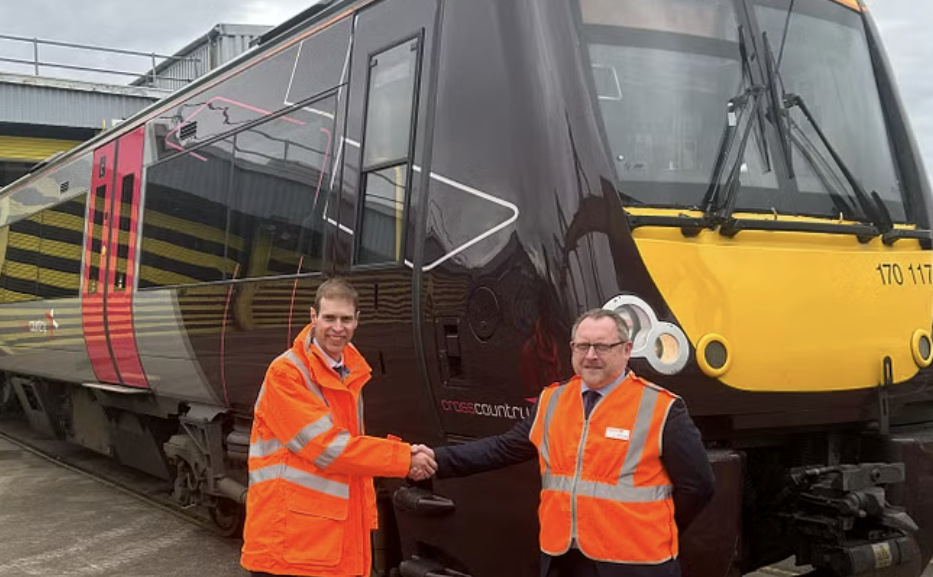West Midlands Trains (WMT) has signed a new long-term maintenance contract with CrossCountry to continue maintaining the long-distance operator’s Class 170 fleet at WMT’s Tyseley depot in Birmingham.
The contract, which started this month, secures jobs in the region through to 2031 and reaffirms the partnership between the two train operating companies. It will see WMT continue to maintain, service and clean the Class 170 fleet.
John Doughty, Engineering Director at West Midlands Trains, said:
“Servicing, maintaining and cleaning the Class 170 fleet has been, and continues to be, an important part of Tyseley depot’s workload and we are delighted to have signed this new contract with CrossCountry.
“The Class 170 fleet provides services connecting regions running from Cardiff and Gloucester in the west through Birmingham to Derby, Leicester and Nottingham in the East Midlands and onwards to Peterborough, Cambridge and Stansted Airport in the east.
“The fleet shares many synergies with West Midlands Trains’ own class 172 fleet and the contract ties in perfectly with our commitment to investing in new infrastructure at depots.”
Adrian Hugill, CrossCountry’s Fleet & Engineering Director, said:
“It’s fantastic to announce our renewed contract with West Midlands Trains who have looked after our regional Class 170 fleet so carefully for many years already. With Tyseley so close to the hub of the CrossCountry network in Birmingham, not only does this decision make perfect operational sense, but it’s important for us to support the communities and economies in Tyseley and wider Birmingham with many more years of planned work for the West Midlands Trains depot.”
As part of infrastructure investments, in addition to a completed new stores building and an already improved fuelling and servicing facility, Tyseley depot is undergoing major upgrades.
The work includes the installation of four new high level mobile gantries and hoists, a synchronous lift facility to lift a full length unit, a package of environmental improvements including shore supplies to reduce diesel engine running, extensions to two of the maintenance buildings and the introduction of an Automatic Vehicle Inspection System (AVIS).
